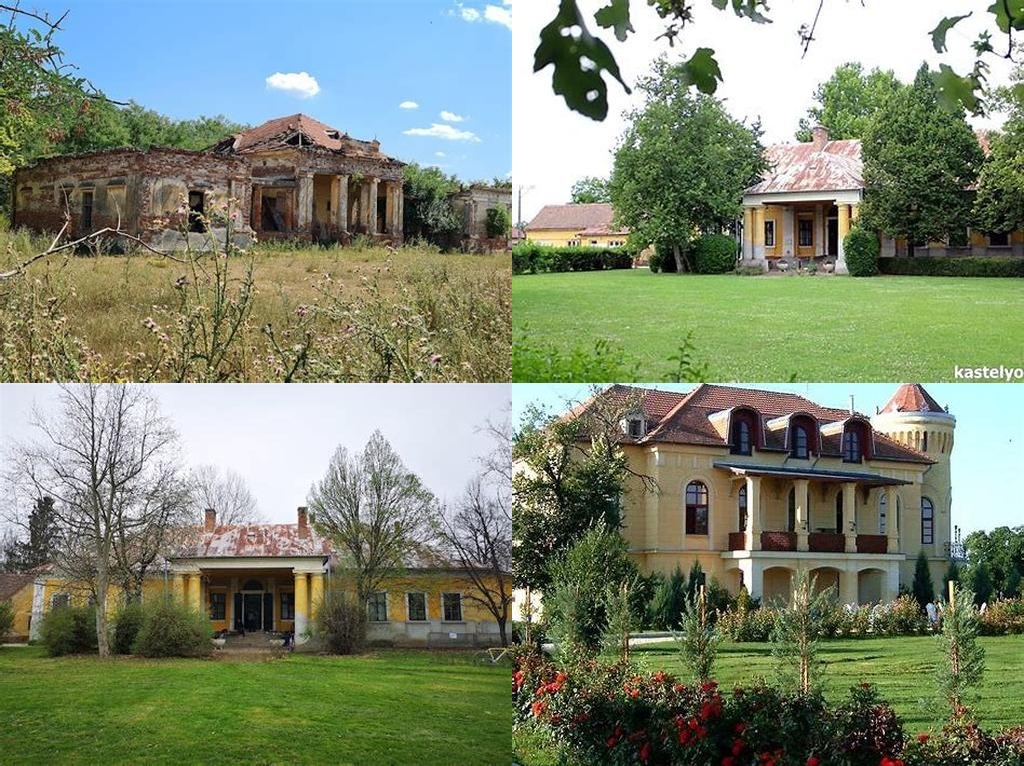
Almásy-kastély, found in the small town of Sarkad in southeastern Hungary, is a destination that sneaks up on you. Unlike the palatial mansions and world-famous châteaux that dominate travel bucket lists, this manor exudes an intimate, slightly mysterious atmosphere. Nestled not far from the banks of the Körös River, Almásy-kastély sings with stories—some whispered, some documented, and many more left to a visitor’s imagination. Arriving in Sarkad, you’ll quickly sense that time moves gently here. The pace of rural Hungary washes over the town, but for all its calm, the castle is anything but sleepy.
The story of Almásy-kastély is tied inextricably to the fortunes and ambitions of the Almásy family. If you’re a fan of sweeping family sagas, you’ll love uncovering tidbits about this noble family, which made its mark on the region’s landscape over centuries. While the original structure is believed to date back as far as the 18th century, the castle as we see it today—stately, yet lived-in—mostly reflects renovations from the 19th century. Walking up the long driveway, you’ll catch glimpses of the neo-classical design, with its unpretentious grace: think stuccoed walls, high windows that let in slanting sunlight, and a modest but elegant portico. Unlike Hungary’s grander baroque estates, this one feels approachable, as if you can picture yourself sipping coffee in the shadow of its columns.
Many visitors are curious about the specifics of the castle’s history. The Almásy name may ring a bell—notably associated with László Almásy, the so-called “English Patient” immortalized in literature and film. While the most famous Almásy was born in what is now Austria and was connected to a different branch of the family, the entire lineage carved out a noteworthy niche in Hungarian history as intellectuals, landowners, and world travelers. The Almásy-kastély in Sarkad serves as a tangible remnant of the era when estates like these were the beating heart of rural aristocratic life. In its heyday, the castle grounds would have buzzed with the comings and goings of dignitaries, local officials, and an extended family that cared deeply for both the land and the town that supported them.
Yet, no visit to Almásy-kastély would be complete without a walk through its park. The centuries-old trees stand like guardians, and winding paths hint at leisurely promenades from another age. If you’re the sort who loves gardens, old trees, and peeling back layers of history with each step, you won’t want to rush this part of your visit. There’s a palpable sense that time slows down in the shadows here. Kids sometimes play along the hedges, and in spring, all kinds of birds fill the air with song. Unlike manicured palace gardens in cities, this one feels wild and lived-in—a real reflection of the passage of time.
Today, Almásy-kastély isn’t just a static relic of a bygone era; it has had many lives. Over the years, it’s served as an administrative building, a school, even a hospital at one point. Visitors are often struck by how the layers of the building’s various functions are still visible: corridors echoing with schoolchildren’s laughter, rooms that could tell stories of both illness and healing, and weathered brickwork that remembers every change in ownership and purpose. It’s a lived-in castle, and that’s part of its charm—it invites you to daydream about all the different roles a single place can play over the centuries.
If you’re venturing into southeastern Hungary, perhaps en route to Gyula or Békéscsaba, make time for an unhurried stop in Sarkad. The castle isn’t showy, and you won’t find crowds queuing for tickets. This is a place best enjoyed quietly, with time to listen, observe, and perhaps strike up a conversation with locals who still feel a sense of pride and connection to the castle and grounds. Whether you’re drawn by a passion for family dynasties, architecture, or simply a longing for tranquil, evocative places, Almásy-kastély will leave its subtle imprint on your memory. It’s a reminder that sometimes the most intriguing corners of Hungary are those that let their stories unfold at their own gentle pace.





